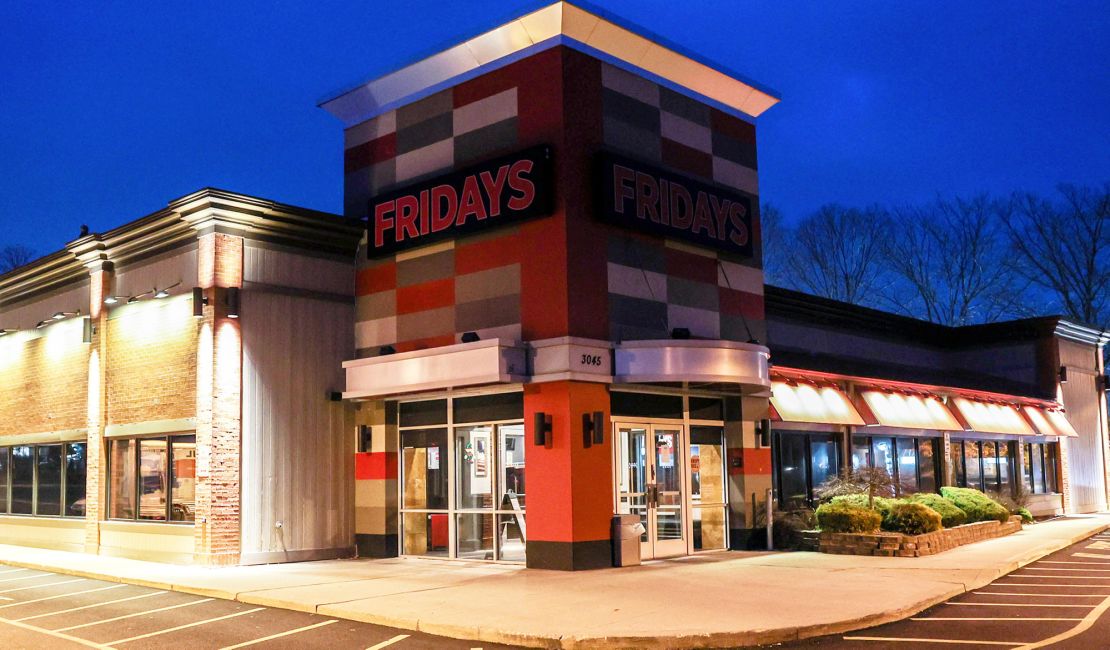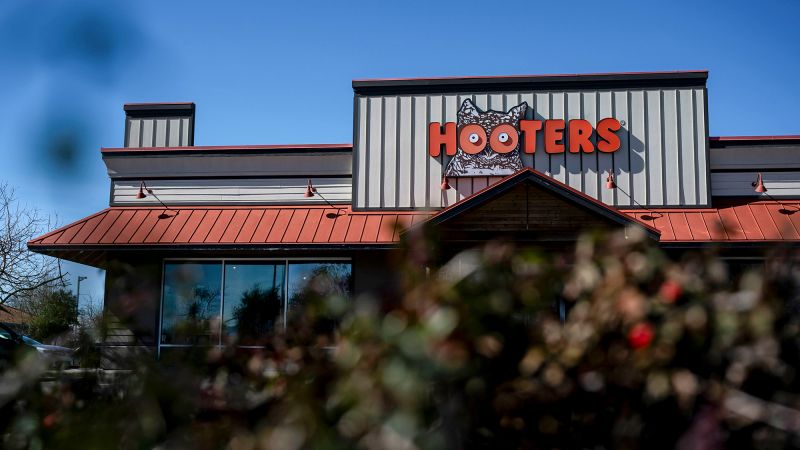New York
CNN
—
Restaurant industry icons where Americans went out for decades for wings, dinner, and celebrations are facing a crisis.
Hooters filed for bankruptcy this week, the latest casual dining chain to go belly up. Red Lobster, TGI Fridays and Buca di Beppo also filed for bankruptcy in the last year. Meanwhile, sales at Denny’s, Applebee’s, Outback Steakhouse, Bonefish Grill, Red Robin and Cracker Barrel’s are dropping, and they are shuttering hundreds of restaurants.
Casual dining chains typically cater to lower and middle-income families looking for a sit-down meal, but diners are abandoning these companies as their disposable income shrinks. These restaurants have been hiking menu prices at the same time their customer base has been squeezed by the rising cost of living. Since 2019, restaurant prices have increased 34%, outpacing the overall growth of inflation during that same period, according to Bureau of Labor Statistics data.
“They’re trying to aim at the average middle consumer,” said Ernest Baskin, an associate professor of food marketing at Saint Joseph’s University. “When consumers start watching their budget, the middle shrinks.”
Instead, diners are choosing to cook dinner at home and are finding cheaper options to grab a meal. That includes frequenting fast-food chains such as Chick-fil-A and Raising Cane’s, and fast-casual restaurants like Chipotle and Cava.
In 2024, sales across the casual dining sector dropped 0.9%, while growing 0.6% at fast-casual chains and 1% at fast-food chains, according to data from Black Box Intelligence.
“In a time-starved world, people want something to be quick at an affordable price,” said Brian Vaccaro, an analyst at Raymond James.
Another sign of the consumer shift from sitting down for dinner at a restaurant to picking up a meal from a fast food or a fast-casual spot: When casual dining chains close, fast-food and fast-casual restaurants have been replacing them —usually with drive-thru stores. Chick-fil-A, for example, is taking over a shuttered Red Lobster in Naples, Florida.
Fast-casual is also more profitable to operate than sit-down restaurants. Chipotle and other fast-casual chains’ locations are smaller, and they require fewer workers and less maintenance to run than full-service restaurants.
The casual dining sector has also struggled because of companies’ own strategic mistakes — some under private equity ownership — and a lack of investment in table service and restaurant renovations.
Hooters was known for its all-female waitresses in revealing orange outfits and chicken wings, but Buffalo Wild Wings and Wingstop’s undercut Hooters’ wings’ prices, and its so-called “breastaurant” image became out of touch with modern consumers.
Hooters is planning a family-friendly makeover once it emerges from bankruptcy.
Red Lobster was driven into bankruptcy by mismanagement under a former owner, global shrimp supplier Thai Union. Thai Union cut Red Lobster’s longstanding suppliers, pushed out veteran employees and infamously made $20 endless shrimp a permanent menu item for the first time, hurting its profit margins. Red Lobster is attempting a comeback under new CEO Damola Adamolekun.

And Outback, which defined the casual dining steakhouse model in the United States, lost customers as it relied too heavily on promotions to draw diners and cut costs, while simultaneously hiking prices. Outback’s check average was $29 last year — $6 above rival Texas Roadhouse and $2.50 more than LongHorn Steakhouse.
“These brands got dated in terms of their menu offering, the look and feel of the restaurants, and how they reach consumers,” said Clarence Otis Jr., the former CEO of Darden Restaurants, which owns chains like Olive Garden and LongHorn.
But there are some bright spots in casual dining. Chili’s, Texas Roadhouse and Olive Garden have bucked the slowdown.
These chains kept prices lower than rivals and invested heavily in labor and restaurant improvements, and they are currently reaping the payoffs from their investments.
Brinker, the parent company of Chili’s, has poured more than $400 million into simplifying Chili’s menu, adding more servers and bussers and renovating restaurants. That investment has allowed Chili’s to upgrade its French fry and chicken tender recipes and offer fast food-like prices. It’s subsequently gone viral on TikTok for videos of customers pulling apart its gooey mozzarella sticks.
Chili’s sales at restaurants open for at least a year increased a whopping 31% last quarter. It was Chili’s third-straight quarter of double-digit sales growth.

“People said ‘casual dining is no good, and Chili’s is in trouble.’ And the reality is we flipped the script on that,” Brinker CEO Kevin Hochman said in an interview last year with CNN. “We’ve done that with the fundamentals of why people go out.”
Another casual chain, Texas Roadhouse, has thrived because of its lower prices. The chain has won over customers not only with its affordable steaks, but with lively, rodeo-style restaurants featuring wood-paneled walls, murals and upbeat country tunes.
Texas Roadhouse’s sales at restaurants open for at least a year increased 7.7% last quarter.
“There’s a widening gap between winners and losers in the casual dining category,” Brian Vaccaro said. “Brands that are investing in labor and the quality of guest experience are winning.”

